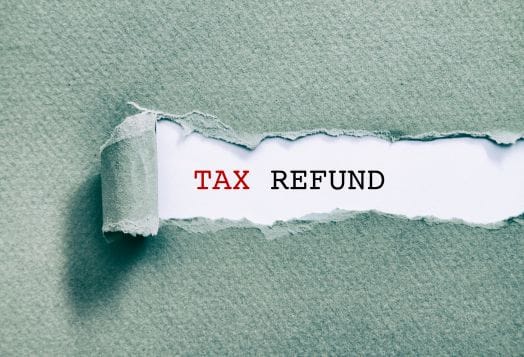It’s that time of year again, and you are eagerly awaiting your tax refund. However, when it finally lands in your account, it’s less than you expected. So, why does your tax refund seem smaller, and more importantly, how can you boost your tax return to get the refund you deserve?

Understanding Your Tax Refund
Let’s learn what really goes on.
What is a Tax Refund?
A tax refund is the excess amount you’ve paid throughout the year, either through TDS (Tax Deducted at Source), advance tax payments, or self-assessment, that gets refunded if your actual tax liability is lower. Essentially, it’s the government's way of returning your overpaid taxes after your final tax liability is calculated.
Why Is Your Refund Lower This Time?
There are several reasons why your tax refund might not match your expectations. Here are some common culprits:
1. Incorrect Declaration of Investments
One common mistake that leads to a smaller-than-expected refund is incorrectly declaring your investments at the start of the year. If you’ve missed submitting investment declarations or failed to upload the necessary documentation, your refund might be impacted.
2. Missed Deductions
If you’ve missed claiming deductions under sections like 80C, 80D, 80E, and others, you could be leaving money on the table. These deductions cover things like life insurance premiums, health insurance, tuition fees, and retirement fund contributions, all of which can significantly lower your taxable income.
3. Under-Reporting Expenses
Another reason for a smaller refund is the under-reporting of expenses like rent, tuition fees, or insurance premiums. For example, rent receipts or medical insurance premiums may be eligible for deduction under various sections of the Income Tax Act, and failing to report them could reduce your potential refund.
4. Higher TDS Deduction, No Corresponding Tax Credits
If your employer or other income sources are deducting more TDS than necessary, but you aren’t claiming those deductions in your TDS return filing, your refund will be much lower. Ensure you reconcile your TDS deductions with your actual income to avoid overpayment.

File Tax Return Correctly to Maximise Your Refund
Filing your tax return accurately is crucial for ensuring that you get the refund you’re entitled to. Some simple yet often overlooked steps can make all the difference:
Declare All Income Sources: Be sure to include all your income, whether it's from salary, freelancing, interest, or capital gains.
Link Your PAN to Aadhaar: This is a mandatory step to file your tax return in India. If your PAN and Aadhaar aren’t linked, your return might get delayed.
Reconcile Form 26AS and AIS: Always verify the data in Form 26AS and the Annual Information Statement (AIS) before submitting your tax return to avoid discrepancies.
Timing Matters
Filing early reduces errors and speeds up the refund process. Early submission allows you to identify and correct mistakes before they delay your refund. Plus, early filing can help ensure that you claim all eligible deductions on time.
Common Mistakes to Avoid
Be mindful of common mistakes, such as:
Mismatching Income in Form 16 vs Actual Earnings: Ensure your Form 16 reflects all your earnings correctly.
Skipping Sections: Don’t forget deductions under Section 80TTA (for savings account interest). These can make a significant difference to your refund.
Smart Strategies to Boost Your Tax Refund:

1. Invest Smarter
To maximise your tax refund, ensure you're taking full advantage of tax-saving schemes under Section 80C with easy legal tax reduction tricks. Contribute to PPF, invest in ELSS, and make tuition fee payments. Additionally, ensure you're claiming health insurance premiums under Section 80D for both yourself and your parents.
2. Claim All Eligible Deductions
Make sure to claim deductions for home loan interest (Section 24), education loan interest (Section 80E), and donations (Section 80G). These deductions reduce your taxable income, potentially increasing your refund.
3. Optimise TDS Management
Ensure that you submit Form 12B and 12BB to your employer correctly. Adjust advance tax payments based on your expected earnings, especially if you're a freelancer or consultant. This helps avoid excessive tax deductions and ensures your refund isn’t unnecessarily reduced.
4. Track and Declare Other Incomes
Don’t forget to declare all sources of income, such as savings account interest, FD interest, and income from freelancing or side hustles. Not reporting these can lead to under-reporting of income, which can impact your refund.
Turn Your Tax Refund into a Big Payoff
A small tax refund is often the result of overlooked deductions, poor tax planning, or mistakes in TDS return filing. But don’t worry, you’re in control! By filing your tax return accurately with guidance from financial consultants, taking advantage of every deduction, and planning your investments wisely, you can easily boost your refund. It’s not just about getting money back; it’s about making sure you’re keeping every rupee that’s rightfully yours. So, start planning your tax strategy today and watch your tax returns grow.
Disclaimer: The information provided is intended for general informational purposes only. It is not a substitute for professional advice or guidance. For personalised recommendations or specific concerns, please consult a certified professional.




